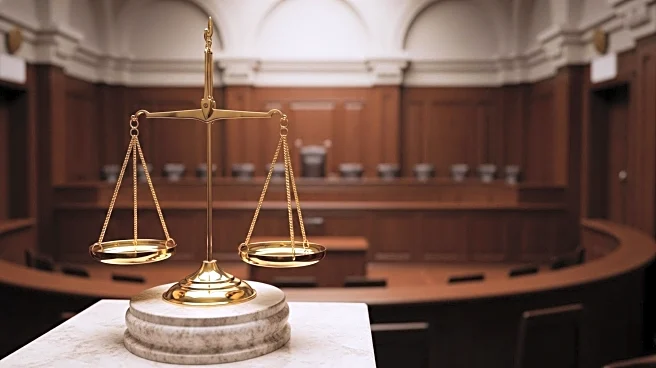What's Happening?
The Supreme Court has issued an emergency order allowing President Trump's administration to end temporary protected status (TPS) for over 300,000 Venezuelan migrants. This decision reverses a lower court ruling that found the administration had wrongly terminated TPS for these individuals. The court's conservative majority supported the administration's move, despite dissent from the liberal justices. TPS, which prevents deportations to countries facing dangerous conditions, was initially granted to Venezuelans due to civil strife. The administration argues that the decision aligns with previous court orders and legal interpretations.
Why It's Important?
The Supreme Court's decision to allow the termination of TPS for Venezuelan migrants has significant implications for immigration policy and the lives of affected individuals. Many migrants may face deportation, loss of employment, and housing instability. The ruling reflects the court's stance on executive authority in immigration matters, potentially influencing future policies and legal challenges. The decision also highlights the broader debate over the U.S.'s role in providing refuge to individuals from countries experiencing turmoil, impacting diplomatic relations and humanitarian efforts.
What's Next?
As the legal proceedings continue, the affected Venezuelan migrants and their advocates may seek further legal recourse or appeal to Congress for legislative solutions. The administration's actions could prompt political and public responses, with potential implications for immigration reform and policy discussions. The Supreme Court's decision may set a precedent for how TPS and similar protections are handled in the future, influencing the legal framework for immigration and refugee policies.
Beyond the Headlines
The termination of TPS for Venezuelan migrants raises ethical and humanitarian concerns about the U.S.'s responsibility to protect vulnerable populations. The decision may affect the country's image as a refuge for those fleeing dangerous conditions, impacting international perceptions and relations. The case also underscores the tension between executive power and judicial oversight in immigration matters, highlighting the complexities of balancing national security and humanitarian obligations.









